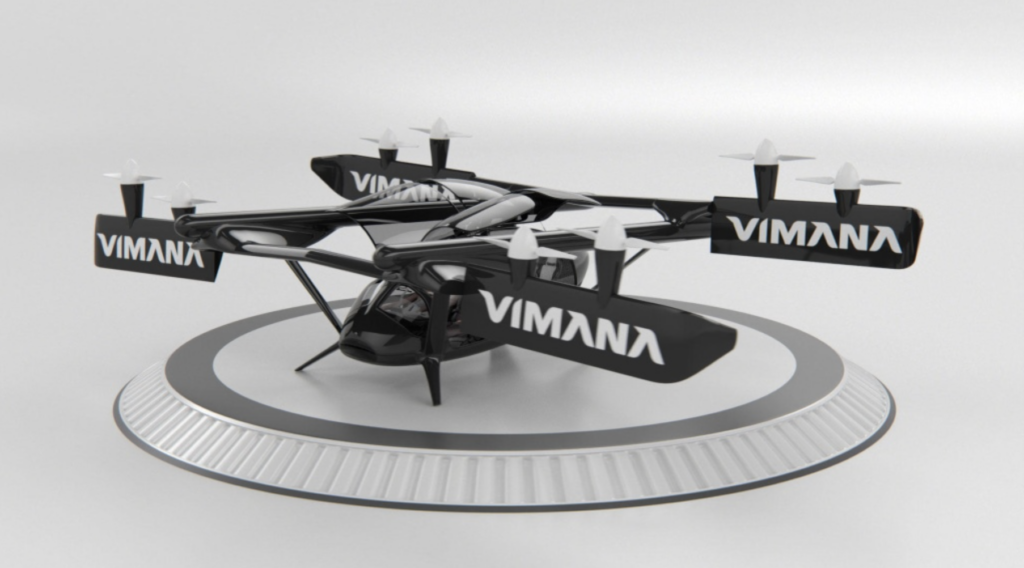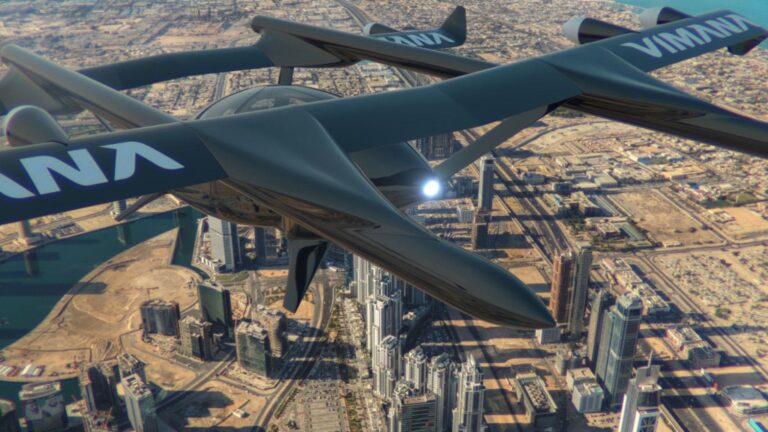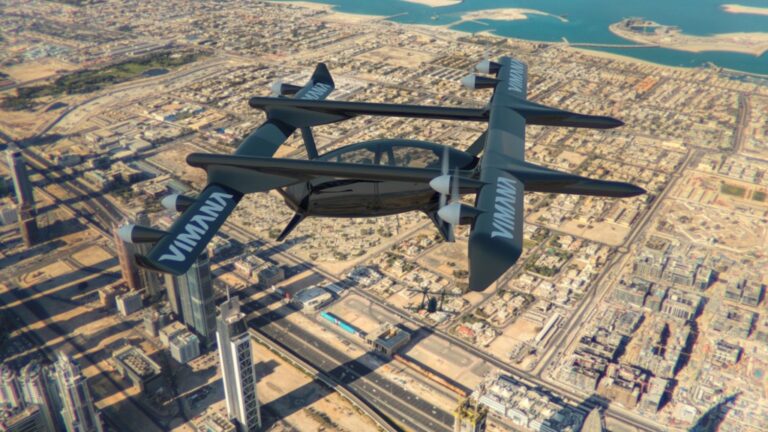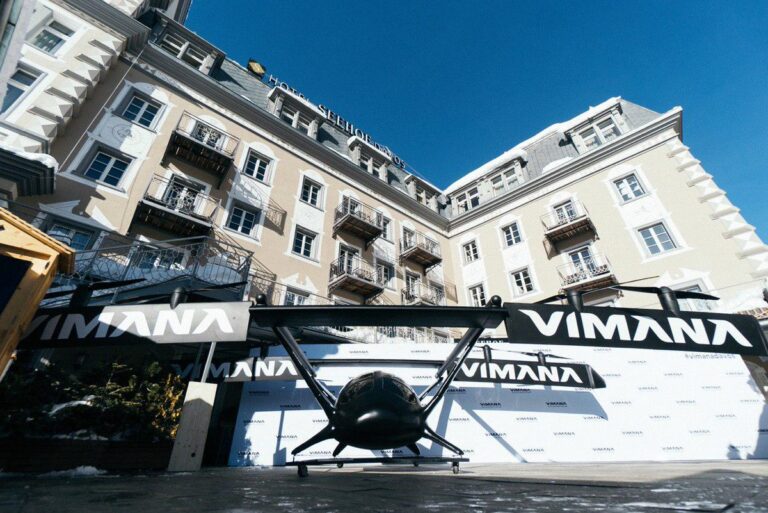VIMANA Global
Founded in 2015, VIMANA Global is developing a hybrid-electric vertical take-off and landing (VTOL) Autonomous Aerial Vehicle (AAV) designs with fore and aft tilting wings, each with four electric propellers, for a total of eight propellers for the entire aircraft, powered by electric motors.
Vimana Global Displays at Davos, Switzerland
Single- and four-seat Autonomous Aerial Vehicle (AAV) designs are being developed by VIMANA Global, Inc. The AAVs have fore and aft tilting wings, each with four electric propellers powered by electric or hybrid-electric motors.
VIMANA is an international company with headquarters in Redwood City, California, and offices in the United Arab Emirates, India, Singapore, Malaysia, and Russia.
VIMANA is developing a blockchain-based and regulated airspace ecosystem for its Urban Air Mobility application and aims to raise $35M with a blockchain token sale.
The company has stated:
- VIMANA is building novel blockchain-based and blockchain-regulated Airspace Ecosystem. The Ecosystem intends to provide Urban Air Mobility programs in smart cities with daily network
aerial commuting based on fly-by-wire operating Vertical Take-Off and Landing Autonomous Aerial Vehicles (VTOL AAVs)
- VIMANA Ecosystem is a novel protocol for autonomous transportation of unattended aerial vehicles employed in daily passenger and cargo on-demand mobility. The Ecosystem is being blockchain-based and blockchain-regulated. That defines safe and reliable interaction between all decentralized aerial network operating participants.
- VIMANA propels the Ecosystem with contributing its proprietary technology – breakthrough Vertical TakeOff and Landing Autonomous Aerial Vehicles that can be efficiently deployed in urban infrastructure.
The Autonomous Aerial Vehicles are intended to address traffic congestion in urban areas by using airspace to move cargo throughout a city, transport commuters, and allow first responders a way to get to a location quickly. They will feature automatic compensation for adverse weather, coordinated flight paths with other AAVs, and the ability to detect objects. The design will use modular construction so that the parts can be shipped to dense urban areas and assembled on the spot where the AAVs are intended to be used.

The project aims for compliance with the goals laid out in the Uber ‘Elevate’ whitepaper, but the company plans to compete with its own blockchain-powered network.
“VIMANA revolutionary lower airspace transportation technology received massive acclaim during the Mianyang Science and Technology Expo exhibition”
– Read @ MEDIUM
“New electric-powered flying taxi proposed for Dubai”
– Read @ Arabian Business
VIMANA is headquartered in Redwood City, California, and has offices in the United Arab Emirates, India, Singapore, Malaysia, and Russia. The VIMANA management team includes leading members of the aeronautical and blockchain communities.
The company lists some major advantages for their hybrid-electric VTOL aircraft:
- Long Range
- Low operating costs
- High Payload
- Modular Design
- Slanted and moving surfaces
- Energy Efficient


Specifications:
- Aircraft type: Hybrid-electric VTOL
- Piloting: Autonomous
- Capacity: 4 people.
- Maximum speed: 244 km/h (152 mph)
- Maximum range: 900 km (559 miles)
- Maximum ceiling: 3,000 m (9,843 ft)
- Take-off weight: 1,050 kg (2,315 lbs)
- Maximum payload: 400 kg (882 lbs)
- Propellers: 8
- Electric motors: 8 (60 kW each)
- Powerplant: 200 kw
- Length: 7.2 m (23 feet, 7 inches)
- Wingspan: 10 m (32 feet, 9.7 inches)
- Wing type: High tilt-wings and two booms
- Landing gear: Stationary landing struts (no wheels)
- Safety features: Distributed Electric Propulsion (DEP), provides safety through redundancy for its passengers and/or cargo. DEP means having multiple propellers and motors on the aircraft so if one or more motors or propellers fail, the other working motors and propellers can safely land the aircraft.
iVenturer's "DeepTalk" Podcast by Medialectica Episode 13: "VIMANA Global: Autonomous Aerial Vehicle & Blockchain Ecosystem"
Stay ahead of the wellness revolution – Try CannaDrinks today!


